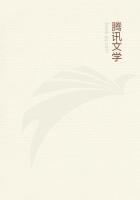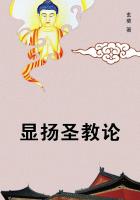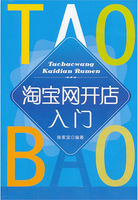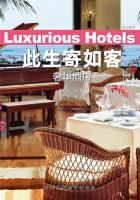Unfortunately Charles V., whose presence in Germany might have exercised a restraining influence, was so engrossed in the life and death struggle with France that he had no time to follow the progress of the religious revolt. To complicate the issue still more, Clement VII., who had been friendly to the Emperor for some time after his election, alarmed lest the freedom of the Papal States and of the Holy See might be endangered were the French driven completely from the peninsula, took sides openly against Charles V. and formed an alliance with his opponent. The good fortune that had smiled on the French arms suddenly deserted them. In 1525 Francis I. was defeated at Pavia and taken as prisoner to Spain, where he was forced to accept the terms dictated to him by his victorious rival. On his release in 1526 he refused to abide by the terms of the Treaty, and a new alliance, consisting of the Pope, France, England, Venice, Florence, Milan, and Switzerland was formed against Charles V. Disturbances, fomented by the Italian supporters of the Emperor, broke out in the Papal States, and a German army led by the Prince of Bourbon marched on Rome without the knowledge of Charles, captured the city, plundered its treasures, and for several days wreaked a terrible vengeance on the citizens.
Charles, who was in Spain at the time, was deeply grieved when the news was brought to him of the havoc that had been wrought by his subordinates. A temporary peace was concluded immediately between the Emperor and the Pope, and the peace of Barcelona in 1529 put an end to this unholy strife. About the same time the hostilities between Charles and Francis I. were brought to a conclusion by the Peace of Cambrai, and the Emperor, having been crowned by the Pope at Bologna (1530), was free at last to turn his attention to the religious revolution in Germany.[27]
During the struggle between Charles V. and the Pope the Lutheran princes had a free hand to do as they pleased, and, indeed, at one time they were not without hope that Charles might be induced to place himself at their head. Besides, owing to the fact that the Turks were advancing on Hungary and were likely to overrun the hereditary dominions of the House of Habsburg, they felt confident that no attempt could be made to suppress Lutheranism by force. At the Diet of Speier, in 1526, John Duke of Saxony, and Philip of Hesse adopted so violent and unconciliatory an attitude that Germany was on the brink of civil war, had not the Archduke Ferdinand, alarmed by the success of the Turks, used all his powers to prevent a division. It was agreed that both sides should unite against the Turks, that a Council should be called within a year to discuss the religious difficulties, and that in the meantime individual rulers were free to enforce or disregard the decree of Worms as they wished.
These concessions, wrung from the Catholic princes owing to the fear of Turkish invasion, did not satisfy either party. False rumours were spread among the Protestant princes that Duke George of Saxony and other Catholic rulers intended to have recourse to arms, and though the Duke was able to clear himself of the charge, the relations between the two parties became gradually more strained. In 1526 the Turks overcame the Hungarians and Bohemians at Mohacz, and advancing into Austria were encamped under the very walls of Vienna. It became necessary to summon another Diet at Speier (1529). The Catholic princes were in the majority, and the knowledge, that the Emperor had concluded peace with France and the Pope and was now ready to support them, rendered them less willing to accept dictation. It was carried by a majority that the Emperor should endeavour to have a Council convoked within a year, that in the meantime the rulers in whose territories the decree of Worms had been in force should continue to enforce it, and that in the states where the new teaching had taken root the rulers were at liberty to allow it to continue, but, in the interval before the Council they should permit no further changes to be introduced. Nobody should be allowed to preach against the Sacrament of the Altar; the Mass should be celebrated if it had not been abolished, and if abolished no one should be punished for celebrating or attending it, and the Scripture should be expounded according to the traditional interpretation of the Church.
The Lutheran party objected strongly to this decree, and as their objections were over-ruled they submitted a formal protest, on account of which they received the distinctive title of Protestants.[28] The protest, signed by the Elector of Saxony, the Margrave of Brandenburg, the Dukes of Brunswick-Luneburg, Philip of Hesse, and the representatives of fourteen cities, having failed to produce any effect on the Diet, a deputation was appointed to interview the Emperor and to place their grievances before him. But Charles V., mindful of his imperial oath, refused to allow himself to be intimidated. He warned the deputation that he and the Catholic princes had also their duties to fulfil towards God and the Church, and that until a Council should assemble they must obey the decrees of the Diet. In January 1530 he convened a new Diet to meet at Augsburg at which he himself promised to be present.
The Diet was convened to meet at Augsburg in April 1530, but it was the middle of June before the Emperor, accompanied by the papal legate, made his formal entrance into the city. On the following day the feast of Corpus Christi was celebrated with the customary solemnities, and the Emperor was pained deeply when he learned that the Protestant princes refused to be present or to take any part in the function. At the opening of the Diet it was agreed that the religious question should take precedence, and the Protestant princes were invited to make a clear statement of their doctrines and demands.















